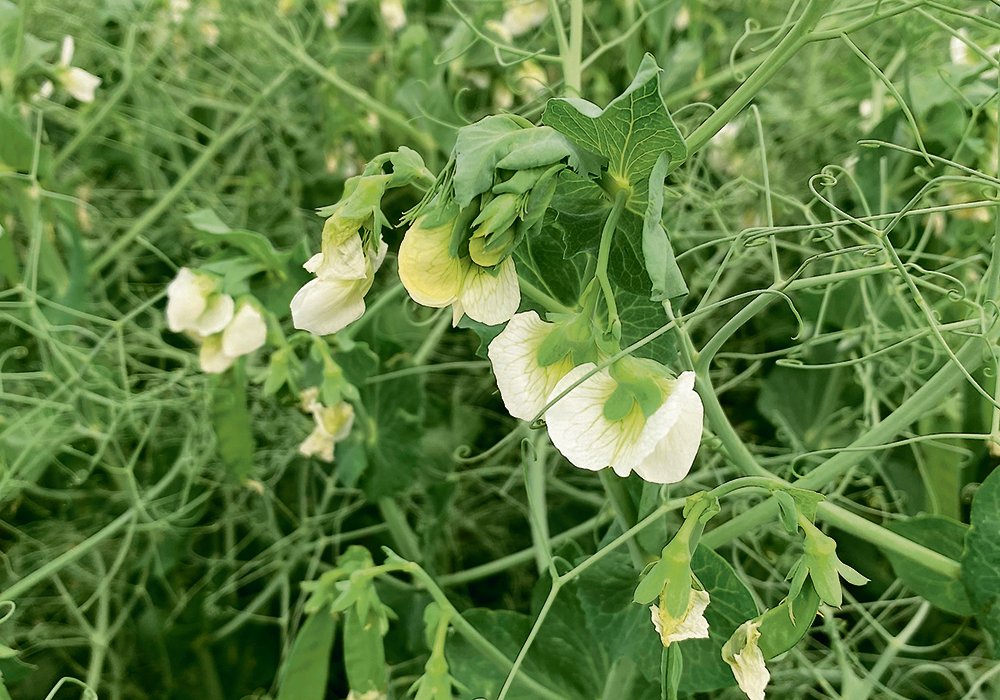Parkland County could attract businesses due to its proximity to logistics hubs such as Edmonton International Airport
An Alberta county is eyeing how it can benefit from Western Canada’s strengths as a world leader in pulse production.
“All opportunities are by nature time limited,” said Robert Fernandez, director of economic diversification for Parkland County just west of Edmonton.
Rural municipalities need to start thinking about how to best create or attract agri-businesses that turn pulses into value-added products rather than simply supplying pulses as commodities to markets such as Asia, he said.
The United Nations’ Food and Agriculture Organization has predicted that Canadian pulse exports will increase to seven million tonnes by 2025, up from about 5.1 million tonnes in 2013-15.
Read Also

Government, industry seek canola tariff resolution
Governments and industry continue to discuss how best to deal with Chinese tariffs on Canadian agricultural products, particularly canola.
“Right now, pulses and lentils are a huge opportunity, but who knows how long that will last?” said Fernandez.
“You know, it might be a decade or two, and someone somewhere will invent something that might strengthen that opportunity, or maybe curtail that.”
Apart from experts such as researchers, few people likely could have predicted 10 years ago that burger patties from vegetable sources would become an important segment of the pulse market, he said.
“We’ve seen the emergence of things like Beyond Meat, and the ability to use plant-based protein in all kinds of new and different products. And combine that with growth in emerging markets, mainly overseas. If we look at Asia, there’s a constant need to increase the supply of protein.”
Fernandez said Western Canada is particularly well placed to meet this demand through protein-based pulses such as chickpeas, fababeans, lentils and soybeans, pointing to “good agricultural land” in Parkland County.
He sees the potential for his county more in terms of providing a location for businesses due to its proximity to logistics hubs such as the Edmonton International Airport. Champion Petfoods recently opened a 421,000 sq. foot facility in the county.
However, climate change is starting to alter everything from growing seasons to yields, potentially opening up new areas to the cultivation of such crops.
Fernandez said farmers and agri-businesses have “opportunities now for growth that were not there necessarily five years ago, let alone 10.”
Although the pandemic has affected an Alberta economy already hard hit by a slump in the oil and gas industry, he said the crisis has also opened up new possibilities for local agri-businesses and producers.
Companies are looking at a more diversified supply chain that isn’t focused on one big plant or manufacturer that can be hurt by disruptions such as quarantines, he said. One of Western Canada’s strengths is that it is less densely populated and therefore more resilient, said Fernandez.
“Right now, obviously, the pandemic is affecting everything because we’re all under a shutdown, but what we’re talking about here goes into the remainder of (2021), the year after, and in the years following.”
The federal government announced Aug. 12 it was providing more than $2.6 million to Alberta’s Food Processing Development Centre in Leduc to help farmers and agri-businesses hit by the pandemic. Besides the Agrivalue Processing Business Incubator, the centre includes a pilot plant and product development lab.
The money will go toward equipment to develop new plant-based foods and products. The initiative aims to help about 100 small to medium-sized companies, potentially bringing up to 30 new products to market over the next four years, said a federal statement.
“Plant-based foods represent a significant economic opportunity for western Canadian firms seeking to meet growing global and consumer demands for protein-rich foods that are healthy and environmentally sustainable,” it said.
“With Western Canada already producing high-protein pulse crops such as peas, lentils, and chickpeas, the goal of this initiative is to enable agri-food producers to turn these crops into higher value ingredients or finished products before exporting them to markets around the globe.”
Technological advances in protein fractionation are helping to position Canada as the “key global supplier of plant-based protein used in the development of food products such as Beyond Burger or non-dairy milk products,” said a statement by Parkland County.
However, getting new agri-businesses off the ground is a bit of a chicken or the egg dilemma, said Fernandez.
“How much can I produce without knowing (I have) a buyer that will be able to buy this product from me? And a buyer who is looking for a new supply chain will say, ‘well, how much can you produce because I need security of supply.’ ”
Major markets such as China also prefer to buy pulses as commodities because turning them into value-added products creates jobs for their own agri-businesses.
However, despite its decades-long success as a supplier of such commodities, Western Canada can’t afford further complacency if it is to meet the challenges posed by competitors such as Australia, he said.
The role of rural municipalities such as Parkland County is “bridging connections and making sure that people talk to each other, and often that is smaller, maybe more specialized deals, so maybe not the thousands of tonnes to begin with, which are the multinational companies … but in the tens of tonnes or hundreds of tonnes, right?”


















